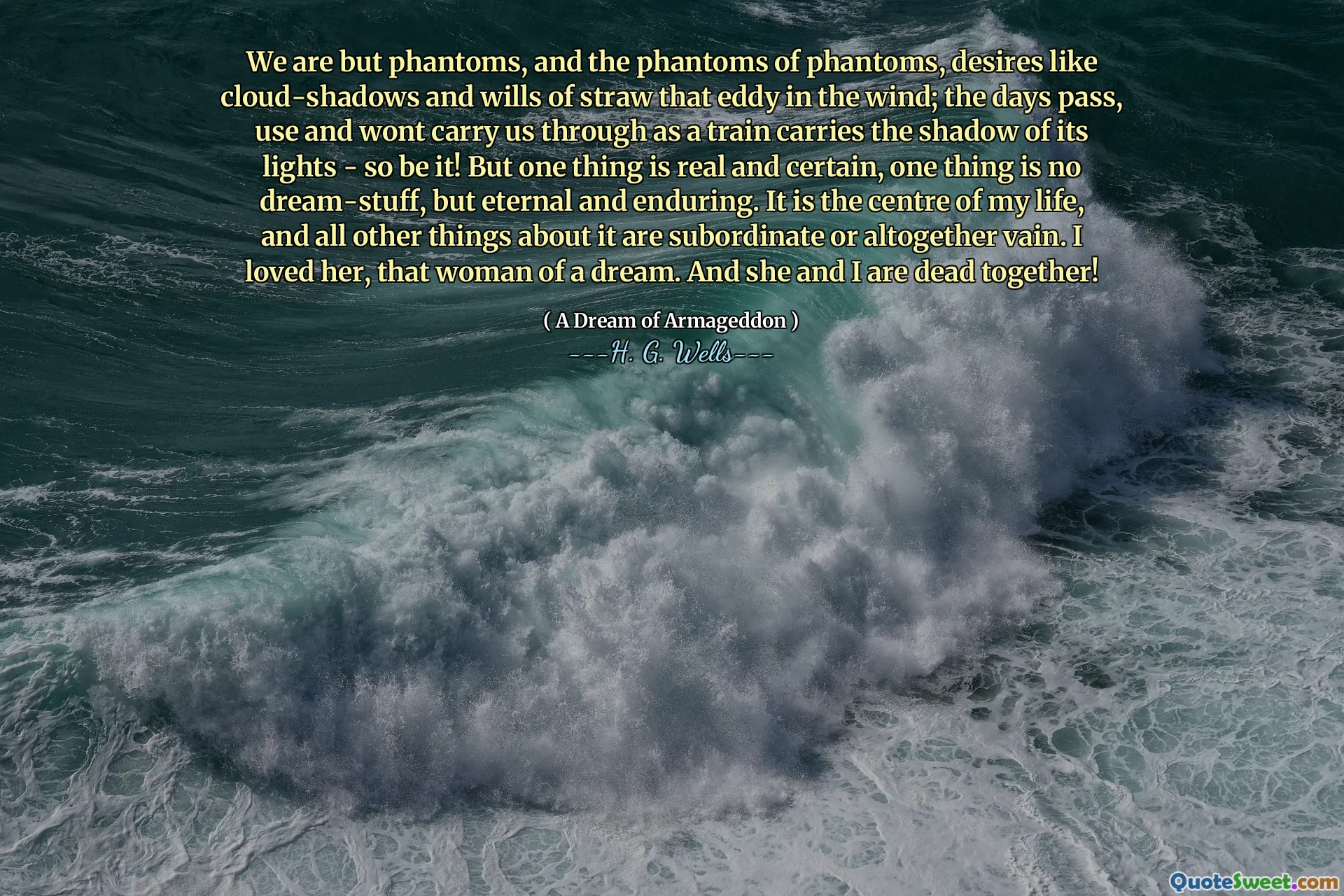
We are but phantoms, and the phantoms of phantoms, desires like cloud-shadows and wills of straw that eddy in the wind; the days pass, use and wont carry us through as a train carries the shadow of its lights - so be it! But one thing is real and certain, one thing is no dream-stuff, but eternal and enduring. It is the centre of my life, and all other things about it are subordinate or altogether vain. I loved her, that woman of a dream. And she and I are dead together!
The quote reflects on the ephemeral nature of existence, suggesting that life and desires are insubstantial, much like shadows. The imagery of phantoms and clouds emphasizes the fleeting quality of human experiences, with routine and time moving forward as if carried by a train. In this contemplation of life’s transience, the narrator acknowledges the inevitability of passing days and the superficiality of many worldly pursuits, underpinning a sense of resignation.
However, amidst this somber reflection, the narrator reveals a profound truth: love. The certainty of love stands out as the only enduring element in an otherwise dream-like existence. It is portrayed as the core purpose in life, eclipsing all else and hinting at a deep, shared connection with a past love that transcends even death. This concluding thought elevates the concept of love to an eternal status, grounding the narrative in a bittersweet context of remembrance and loss.


